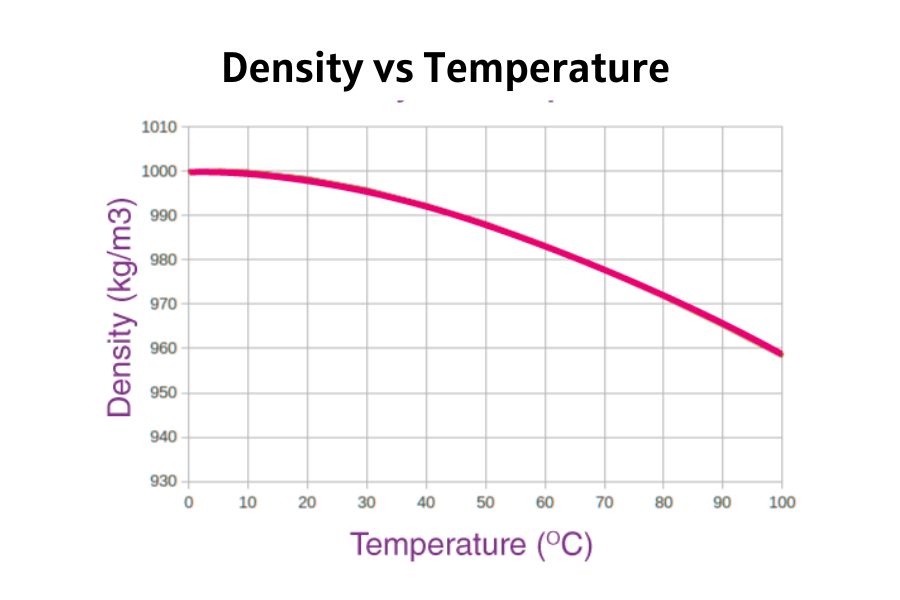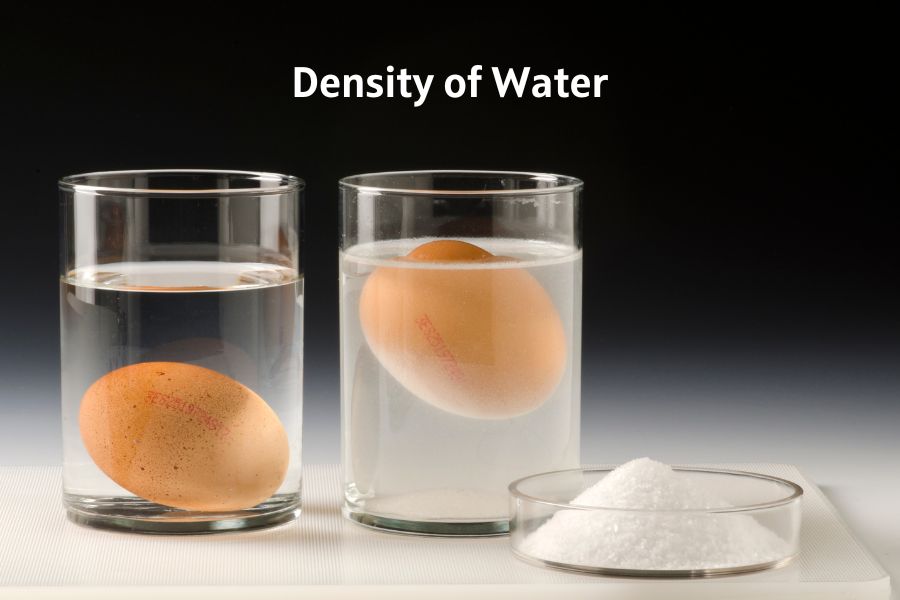The Concept of Density
Density is the quantity of mass per unit volume of a substance. Water’s density is typically expressed in grams per cubic metre (g/cm3) or kilograms per liter.
The Unique Properties of Water
Water is unique in that its density changes with temperature. Most substances tend to increase in density as temperatures decrease, but water exhibits the opposite pattern: its density increases with temperature until 4 degrees Celsius and then drops off as temperature decreases.
Factors Affecting Water Density
Temperature’s Role
As mentioned earlier, the temperature is a significant factor in determining the density of water. When water is heated, its molecules gain kinetic energy and move faster, causing them to spread out and occupy more space. This results in a decrease in density. Conversely, as the water cools, its molecules lose kinetic energy and move closer together, increasing the density.
The Impact of Salinity
Another factor that affects water density is salinity or the concentration of dissolved salts in the water. Higher salinity leads to a higher density, as the dissolved salts increase the mass of the water without significantly increasing its volume.

| Temperature | Density in kg/m3 |
| 60 °C | 983.2 |
| 40 °C | 992.2 |
| 30 °C | 995.65 |
| 25 °C | 997.04 |
| 22 °C | 997.77 |
| 20 °C | 998.2 |
| 15 °C | 999.1 |
| 10 °C | 999.70 |
| 4 °C | 998.97 |
| 0 °C | 999.83 |
Understanding the density of water and its various factors has practical applications in our everyday lives and across numerous industries. In agriculture, knowledge of water density helps optimize irrigation systems and ensures efficient water management. In environmental sciences, understanding water density is crucial for predicting ocean currents, climate patterns, and the behaviour of ice in polar regions. Additionally, water treatment facilities and the shipping industry rely on water density data to maintain safety and efficiency.
Frequently Asked Questions
Q. What is the density of seawater?
Seawater has a more complex density profile than freshwater due to the combined effects of salinity and temperature. In general, seawater density increases with decreasing temperature and increasing salinity. However, the relationship between these factors is only sometimes linear, making the density of seawater an intricate subject to study.
Q. What is the density of water at 4 degree Celsius?
As mentioned earlier, water exhibits its maximum density at 4 degrees Celsius. This anomaly occurs because of water molecules’ unique structure and hydrogen bonding. As the temperature decreases, the hydrogen bonds between water molecules become stronger and more stable, causing them to arrange themselves in a more ordered, hexagonal lattice. This arrangement results in a slight decrease in density as the temperature falls below 4 degrees Celsius.
Related Article:
+ What are parameter of drinking water?
+ What are the methods of water purification?




